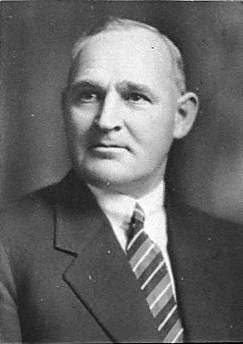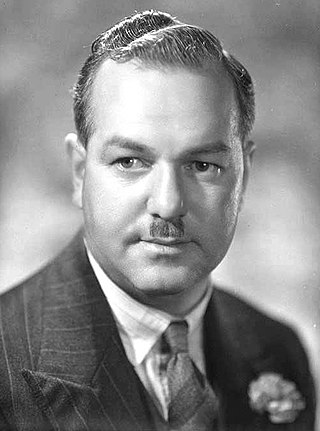
John Alfred Alexander Lee was a New Zealand politician and writer. He is one of the more prominent avowed socialists in New Zealand's political history.
The Democratic Labour Party (DLP) was a left-wing political party in New Zealand in the 1940s. It was a splinter from the larger Labour Party, and was led by the prominent socialist John A. Lee.
The Onehunga by-election of 1980 was a by-election for the Onehunga electorate during the 39th New Zealand Parliament. It was prompted by the death of Frank Rogers, a Labour Party MP. It was held on 7 June 1980 and was won by Fred Gerbic, also of the Labour Party.

Frank Langstone was a New Zealand Member of Parliament, Cabinet Minister and High Commissioner to Canada.

Norman Vazey Douglas was a New Zealand trade unionist and left-wing politician. He joined the New Zealand Labour Party in 1932, but when John A. Lee was expelled from the party in 1940, Douglas followed to join the new Democratic Labour Party. He rejoined the Labour Party in 1952 and represented the Auckland Central electorate in Parliament from 1960 until his retirement in 1975, serving time on the Opposition front bench.

John "Jock" Skinner Stewart was a New Zealand politician of the Labour Party.

Mary Manson Dreaver was a New Zealand politician of the Labour Party. She was the third woman to sit in the New Zealand House of Representatives, one of the first two women to sit in the New Zealand Legislative Council, and the only woman to sit in both chambers.

James Wright Munro was a New Zealand politician of the Labour Party.

The Reverend Colin Graham Scrimgeour, also known as Uncle Scrim or Scrim, was a New Zealand Methodist Minister and broadcaster.
Barry Selwyn Gustafson is a New Zealand political scientist and historian, and a leading political biographer. He served for nearly four decades as professor of political studies at the University of Auckland, and as Acting Director of the New Zealand Asia Institute from 2004 to 2006. He has contested various general elections, first for the Labour Party and later for the National Party, coming second each time.
Grey Lynn is a former New Zealand parliamentary electorate, in the city of Auckland. It existed from 1902 to 1978, and was represented by nine Members of Parliament.
Parnell was a parliamentary electorate in the city of Auckland, New Zealand, from 1861 to 1954, with one break of eight years.
The Grey Lynn by-election 1963 was a by-election held in the Grey Lynn electorate in Auckland during the term of the 33rd New Zealand Parliament, on 18 May 1963.
The New Zealand Labour Party leadership election, 1940 was held on 4 April 1940 to choose the fourth leader of the New Zealand Labour Party. The election was won by Wellington Central MP Peter Fraser.

The Lee affair was an event that transpired in the late 1930s in New Zealand revolving around the unequivocally socialist Labour Party MP John A. Lee, and his repeated public critiquing of his party's leadership. The affair culminated with Lee's expulsion from the Labour Party. Lee then formed his own political party, the further-left Democratic Labour Party, causing a sizeable rift in party membership. The events have been described as the Labour Party's first major crisis of identity, the nature of which and manner of its resolution significantly affecting the subsequent development of the party for decades. Lee's biographer Erik Olssen stated that the Lee Affair "marked a key battle in the triumph of authority over democracy."
The Waitemata by-election was held on 19 July 1941 was caused by the death of Jack Lyon during the term of the 26th New Zealand Parliament. Mary Dreaver of the Labour Party won the by-election; she was the third woman elected to the House of Representatives.

Joseph Callil Sayegh was a New Zealand politician and businessman.

The 1945 Hamilton by-election was a by-election held during the 27th New Zealand Parliament in the Waikato electorate of Hamilton. The by-election occurred following the death of MP Frank Findlay and was won by Hilda Ross, both of the National Party.

John William Kealy (1902–1970) was a New Zealand politician and lawyer.
Patrick Thomas Curran was a New Zealand trade unionist and local-body politician.











